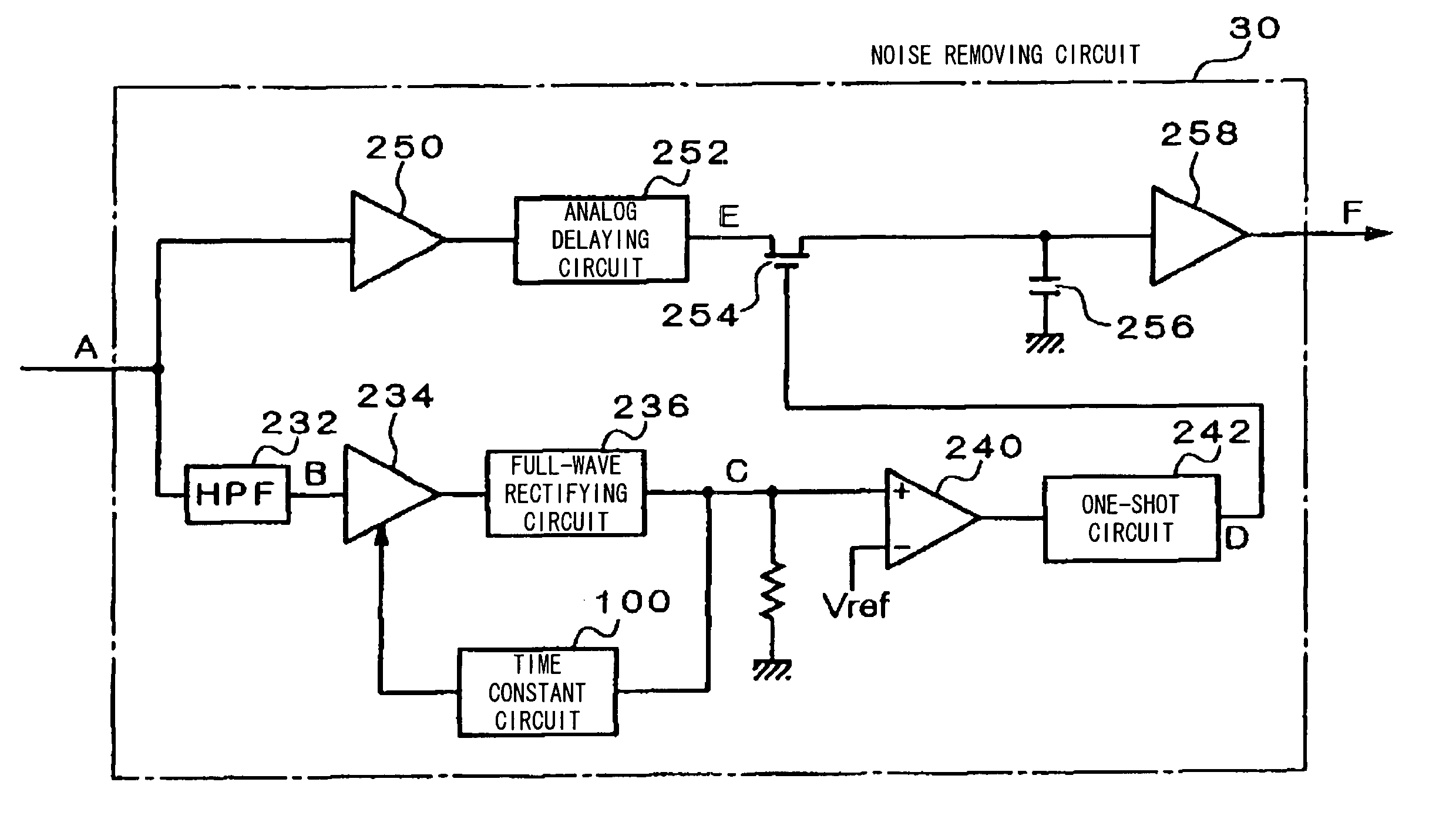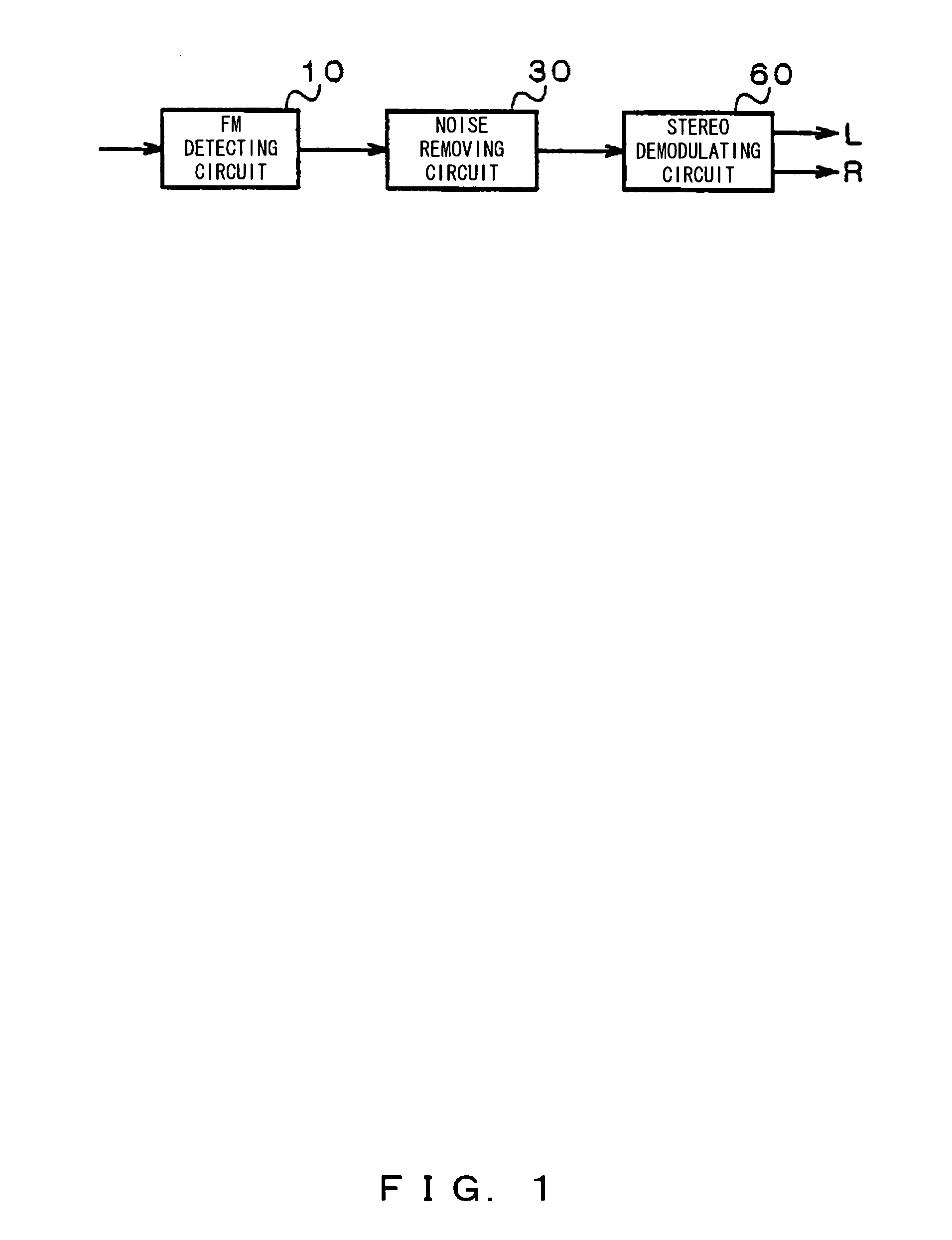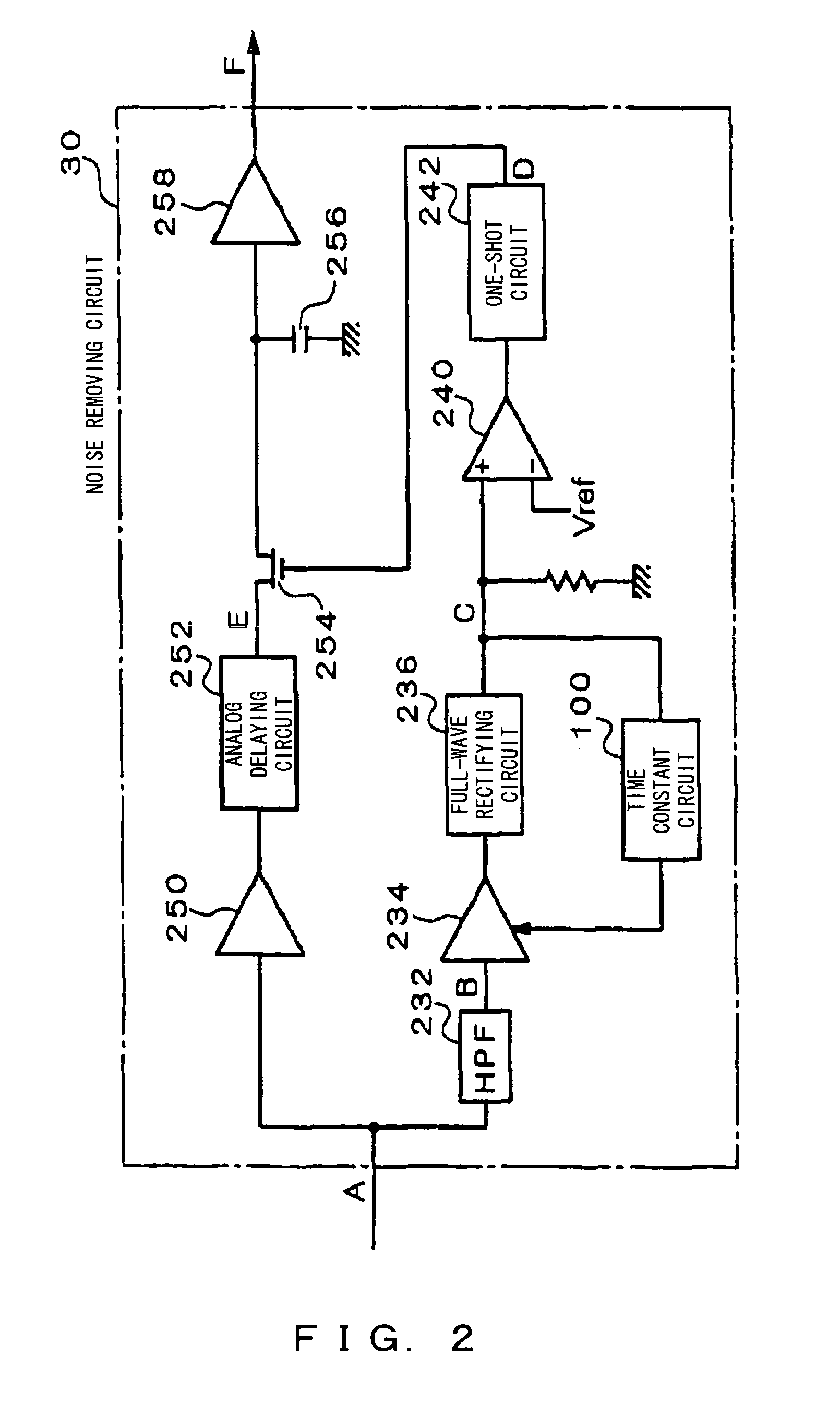Noise removing circuit
a noise removal circuit and noise technology, applied in pulse manipulation, pulse technique, instruments, etc., can solve the problems of delay time and amount of time required, and achieve the effect of improving the accuracy of noise component removal
- Summary
- Abstract
- Description
- Claims
- Application Information
AI Technical Summary
Benefits of technology
Problems solved by technology
Method used
Image
Examples
Embodiment Construction
[0023]Hereinafter, a noise removing circuit according to one preferred embodiment, to which the present invention is applied, is described with reference to the drawings.
[0024]FIG. 1 shows a partial configuration of an FM receiver including a noise removing circuit according to one preferred embodiment. As shown in FIG. 1, the FM receiver in this preferred embodiment is configured by comprising an FM detecting circuit 10, a noise removing circuit 30, and a stereo demodulating circuit 60. The FM detecting circuit 10 outputs a stereo composite signal by executing an FM detection process for an intermediate frequency signal amplified by an intermediate frequency amplifying circuit (not shown). The noise removing circuit 30 removes noise included in the FM stereo composite signal input from the FM detecting circuit 10. The stereo demodulating circuit 60 executes a stereo demodulation process for separating L and R signals included in the input stereo composite signal.
[0025]FIG. 2 shows ...
PUM
 Login to View More
Login to View More Abstract
Description
Claims
Application Information
 Login to View More
Login to View More - R&D
- Intellectual Property
- Life Sciences
- Materials
- Tech Scout
- Unparalleled Data Quality
- Higher Quality Content
- 60% Fewer Hallucinations
Browse by: Latest US Patents, China's latest patents, Technical Efficacy Thesaurus, Application Domain, Technology Topic, Popular Technical Reports.
© 2025 PatSnap. All rights reserved.Legal|Privacy policy|Modern Slavery Act Transparency Statement|Sitemap|About US| Contact US: help@patsnap.com



